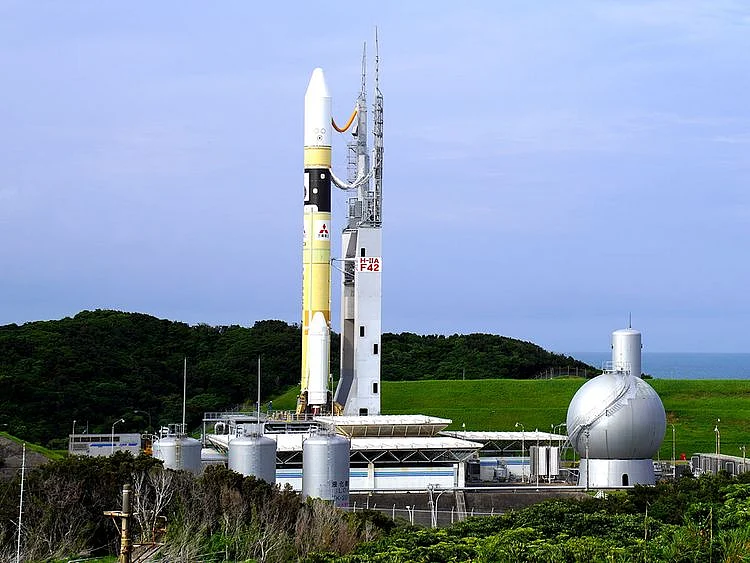Also In This Package
As an Emirati, I will watch with pride as history is made in front of our eyes the launch of the UAE’S Hope Probe to Mars.
First announced six years ago, we perceived it to be merely a dream and an ambition. However, today it is a reality. Yes, the UAE is heading to Mars, with our leaders’ vision as grand as the universe.
The United Arab Emirates is young nation, only 50 years old, yet it is heading to space amid a global pandemic. With a strong sentiment embedded deeply in policy objectives, budgetary priority displays a strong commitment to future space missions.
How can the UAE expand its role as a key, cooperative player in international space advancement, not just for the Arab region, but for the entire world?
Fifty years ago, in Houston, Texas, then US President John F. Kennedy delivered his moon speech at Rice University’s football stadium in front of 40,000 people. He stated, “For the eyes of the world now look into space, to the moon and to the planets beyond, and we have vowed that we shall not see it governed by a hostile flag of conquest, but by a banner of freedom and peace.” The former US president called for the peaceful employment of space exploration as a key instrument for the accumulation of scientific knowledge and advancement. As space exploration is a focus for many nations, it holds not only the prestige of scientific advancement, but also a vision that inspires humanity.
With the beginning of the “Space Race” in the late 1950s, two significant world powers and Cold War rivals, the United States and the Soviet Union, battled for pre-eminence in space exploration, including the development of aerospace capabilities. Other nations, such as China, Japan, India, and the UAE, strive to become space powers in 2020 by launching multiple projects. However, space is now crowded with 60 players, including commercial entities. Therefore, creating a bridge between various nations and space organisations is a primary component to the advancement of space power that will sustain for years to come.
Here are two examples:
International cooperation is at the heart of the modern space era. One primary example is the National Aeronautics and Space Act created by Nasa in 1958 to connect the international community. It proved to be successful as it remains an active part of space policy today. It has over 3,000 agreements with over 100 nations; half of these agreements are with France, Germany, Japan, the United Kingdom, Italy, Canada, and Russia. International space stations are the main outcomes of these collaborations, having been credited with being the second largest-ever peaceful investment in the collaboration of nations. This is not to forget projects such as the Mars Science Laboratory and MAVEN, Mars Atmosphere and Volatile Evolution.
“Space diplomacy” is a new form of diplomacy that is linked to international cooperation and remains highly debated in geopolitical avenues. It calls for multilateral efforts and the pooling of resources in the interest of achieving a larger goal and providing new opportunities to build better collaborations between scientists and diplomats under the various umbrellas of science diplomacy. We cannot turn a blind eye to the most important dimension of space diplomacy, which is international cooperation, and includes laying the foundation for protection from any armaments in space. Earthly conflicts can move to space, and here the responsibility rests with the main powers. Space is not only about exploration, but also protection.
Today, the United Arab Emirates is among five main countries launching space projects. Coinciding with the celebration of its golden jubilee, this is just the beginning.
— Ruqayya Alblooshi is a UAE columnist and researcher in International Relations. Twitter: @ruqayya82
Sign up for the Daily Briefing
Get the latest news and updates straight to your inbox
Network Links
GN StoreDownload our app
© Al Nisr Publishing LLC 2025. All rights reserved.
